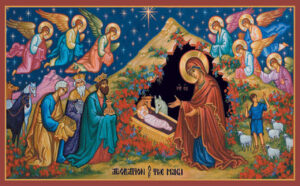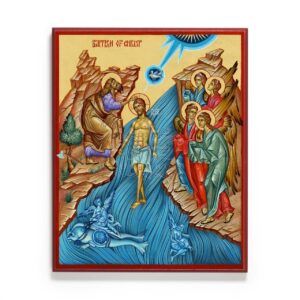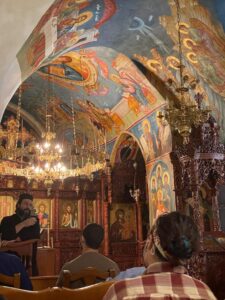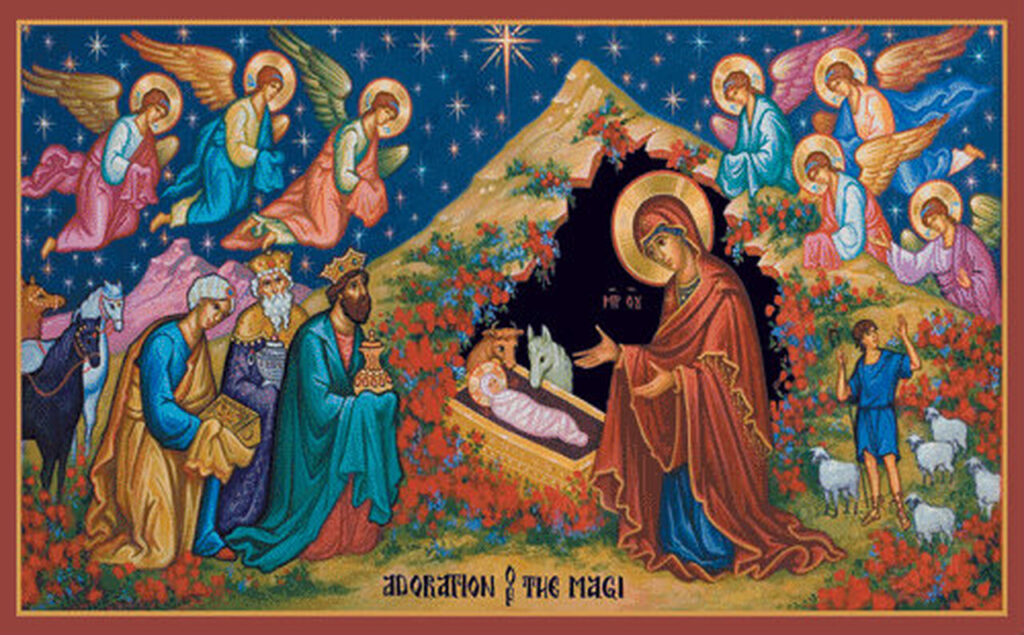Celebrating Epiphany in Lebanon
Leda Zakarison serves with the Forum for Development, Culture, and Dialogue, Beirut, Lebanon.
I have always loved Epiphany. In fact, I consider myself as a bit of an Epiphany aficionado. For as long as I can remember, we had an Epiphany service at my church. Since Epiphany isn’t a majorly observed holiday in the US, having this day to gather together with my church community always felt like my own little bit of joy, a small way to connect me with the larger Body of Christ as we celebrated together.
When I moved to Lebanon, I was delighted to find that Epiphany is celebrated here, too. Christmas decorations stay up until the 6th, which is also when Armenians (including Protestant Armenians who are part of the Union of Evangelical Armenian Christians) celebrate Christmas. Because of the French influence, you can find galettes de rois in patisseries all over Beirut. Churches hold special services. Suddenly, my Epiphany observation was not the exception, but the norm.

This year, on January 6th, I walked into the FDCD office and sat down to write an Epiphany greeting for our social media. I was delighted to be able to acknowledge this holiday so publicly and celebrate with the FDCD community. I sat down, wrote a small message, found a beautiful icon of the three kings coming to greet Baby Jesus, and sent it off for translation into Arabic and final approval.
But my coworkers saw the post, they were confused. “Why is there a nativity icon included?” They asked, “What does this have to do with Epiphany?”

I was dumbfounded. “Well…” I said, trying to figure out if this was a trick question. “Epiphany is when the magi came to see Baby Jesus. So it’s an icon of the nativity scene with the magi arriving.”
My coworkers looked equally confused. “No, epiphany is when Jesus was baptized. It’s the Theophany.” One of them told me. “It’s when the Holy Spirit appeared as a dove and all that. It has nothing to do with magi.”
I was confused – all my Lebanese Christian coworkers regardless of their sect (Greek Orthodox, Maronite, or Protestant) coworkers agreed. None of them had heard of my magi-based traditions. Is it possible that I was wrong, that I had misunderstood a fundamental part of my own tradition? What was going on?
We went back and forth for a bit discussing this, and I did some research. Finally, I discovered that churches in North America, South America, Europe, and Australia (both Catholic and Protestant) celebrate the arrival of the Magi on January 6. The Sunday following this is when we remember Jesus’ baptism. Christians in the Middle East have long associated the 6th with the baptism of Jesus and the appearance of the holy spirit in the form of a dove.

Over the course of my two years in Lebanon, I have learned so much – about the city and country where I live, about the ins and outs of grant writing and working at an NGO, and about all the vast array of ways that members of the Body of Christ understand and live out our shared faith. But I have also found that most of the time when I learn something notable or surprising about Lebanon, I also learn something about myself, my traditions, and my culture. My understanding of what it means to be a Christian is challenged and broadened with each encounter I have with other forms of Christianity. Even seemingly banal moments, like writing a Facebook post about a much-loved holiday, can turn into a journey of discovery about the history of the church and the meanings of our traditions.
“Epiphany” literally means “appearance.” This is not something I had thought about much before this year. I never stopped to ask myself, who is appearing, and how? In the Eastern churches, “Epiphany” is also called the Theophany – the appearance of the divine. I have learned this year that on Epiphany, we celebrate the first time God appeared to us in human form. But Epiphany is certainly not the last time that God has appeared to us. This story is the first time of many that believers felt the movement of the Holy Spirit and sensed the divine within their own bodies and see it in others’.
This Epiphany, the divine appeared to me as curiosity, wisdom, patience, and exchange in a moment of misunderstanding and confusion, discussion and comparison, and finally understanding and learning. As we move into this new, difficult year together, I pray that we can continue to have and appreciate abundant Epiphanies all year, no matter how big or small they are.
Leda Zakarison serves with the Forum for Development, Culture, and Dialogue, Beirut, Lebanon. Her appointment is made possible by your gifts to Disciples Mission Fund, Our Church’s Wider Mission, WOC, and your special gifts.

